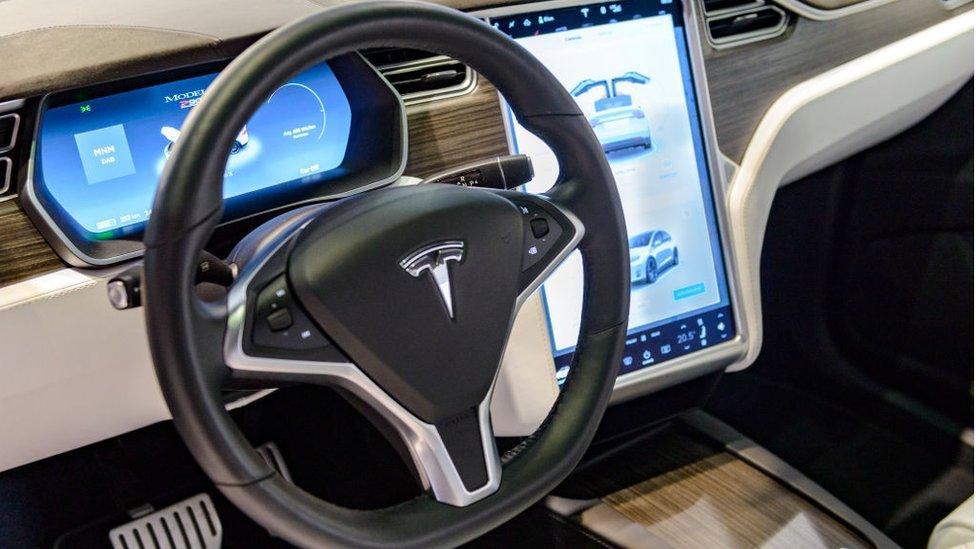Tesla recalls cars that may roll past stop signs
- Published

Tesla is recalling nearly 54,000 vehicles because a software feature lets them roll through stop signs.
The company will issue an over-the-air software update that disables the Full Self-Driving Beta (FSDB) "rolling stop" function.
Elon Musk, the firm's chief executive tweeted that there were no safety issues and the cars just slowed down.
All-way stop signs, common on North American roads, require drivers to halt completely, before proceeding., external
According to the National Highway Traffic Safety Administration (NHTSA): "Failing to stop at a stop sign can increase the risk of a crash."
In recall documents,, external the electric vehicle maker notes that if certain conditions are met, the "rolling stop" feature is designed to allow the vehicle to travel through all-way-stop intersections at up to 5.6mph without coming to a complete stop.
Tesla says the conditions include:
the functionality must be enabled in FSDB settings.
the vehicle must be travelling below 5.6mph
no relevant moving cars, pedestrians or cyclists are detected near the intersection
all roads entering the intersection have a speed limit of 30 mph
In January, Tesla met with NHTSA to discuss the rolling-stop feature, and shortly afterwards decided on a voluntary recall.
It covers some 2016-2022 Model S and Model X, 2017-2022 Model 3, and 2020-2022 Model Y vehicles.
'No issues'
Tesla says it is not aware of any collisions, injuries or fatalities related to the feature.
Mr Musk tweeted: "There were no safety issues. The car simply slowed to -2mph and continued forward if clear view with no cars or pedestrians."
The news follows the announcement in December of a recall of 475,000 Tesla vehicles in the US for potential issues involving rear-view cameras and the boot.
And in August the NHTSA opened an official investigation into Tesla's "self-driving" Autopilot system.
The safety administration said it was acting, following 11 Tesla crashes since 2018 involving emergency vehicles.
Related topics
- Published30 December 2021

- Published16 August 2021
